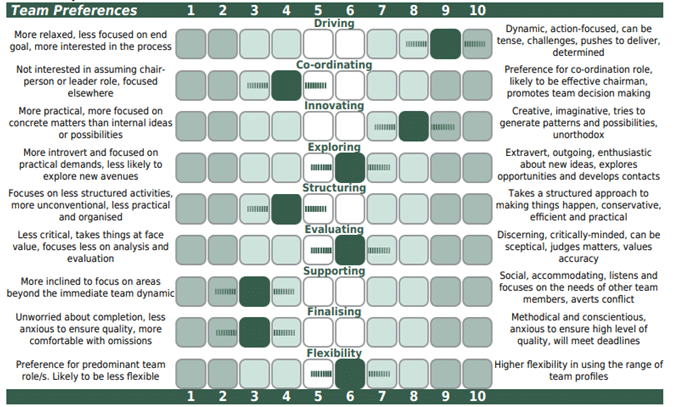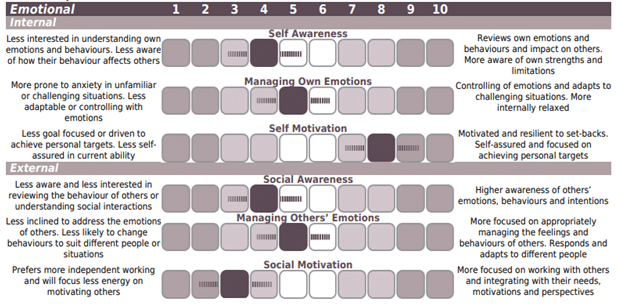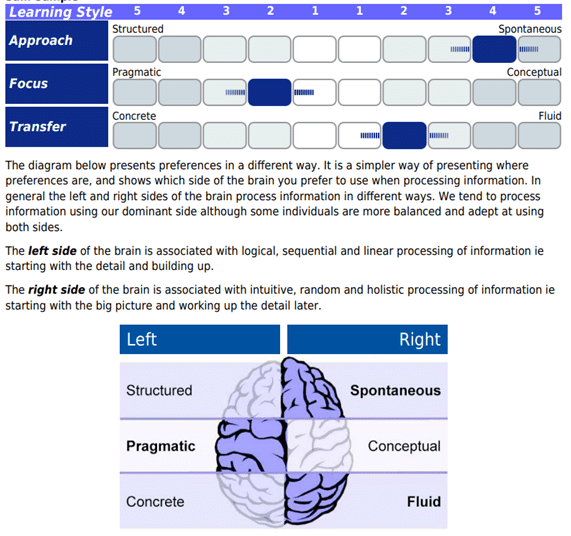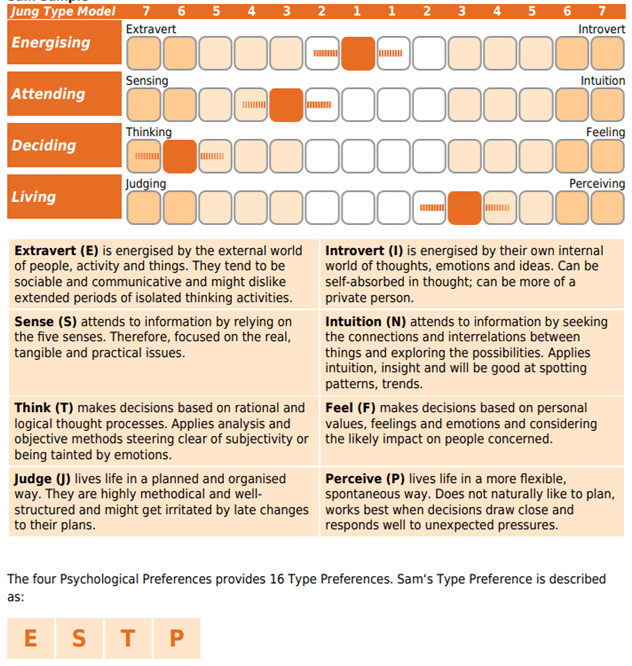Identity Personality Questionnaire
Personality Questionnaire Talent Report – we continue with our series covering the five different reports available from Identity the BPS Accredited Personality Tool.
Recruitment | Selection | Development
THE TALENT REPORT
The Benefits of Identity
Just to remind you of the benefits of using the Identity Personality Questionnaire:
- Well researched and validated tool
- No training needed as reports are interpreted
- Efficient and quick delivery of reports
- One questionnaire completion for comprehensive outputs
- Suitable for all levels within an organisation
- A range of user – friendly reports to meet all your needs
- Cost-effective solution
Supporting Personal Development
IDENTITY TALENT REPORT
The ‘Identity’ Personality Questionnaire Talent Report is mainly aimed at supporting personal development but can also be used to support assessment and recruitment. It is appropriate for anyone in responsible roles. It has been designed to provide readers with key information on the following three important performance areas (Domains): People & Communication, Thinking & Judgement, Task Focus & Drive.
What’s included in the Talent Report and how to use it?
A Sample Personality Questionnaire Talent Report is available for download below. We will now take you through the sections within the report.
Report Profile
The personality questionnaire talent report Profile is provided showing all the 36 Identity scales. Please note that personality scales use a 10-point scale. These are not linear scales but normalised scales. What that means is that much more people score in the middle of the scale than at the extremes i.e. very few people get 1’s and 10’s.
The 1 – 10 scale
This measures quantity of a personality trait so for example, the first scale is Social Presence. 1 means very little i.e. very reserved and introverted; whereas 10 means very much i.e. very outgoing and extraverted.
However, the scale by itself is not about good or bad. Meaning, we can only be judgemental when we are looking for the best fit to a role or job. For example, if the job requires effective communication and to be able to quickly build positive relationships, then we may consider that a person who is not too low on Social Presence may be more suited to the role.
3 Domains
The report describes the person’s behavioural preferences around 8 generic competences around the 3 Domains:
- People & Communication
- Thinking & Judgement
- Task Focus & Drive
Identity scales will support Competences
Appropriate Identity scales will support each of these competences. These competences are typically all highly relevant for all responsible roles/ jobs. The narrative provides insights about the person’s preferred behaviours. Following on from this we can provide useful discussion to identify potential strengths and weaknesses based on their preferences.
Development Areas
Note, that on-going development is NOT simply about identifying weaknesses and working on those. With personality we have a range of options. For example, a strong behavioural preference may either be a good fit or a poor fit for a role. If it is a good fit we may choose to develop a strength – as that could yield greater rewards. If it is a poor fit it might be due to little interest and motivation for this area. Therefore, there will be other options to get around this e.g. to work with others who look after this area – rather than to see it as a development need.
Included within the report is the Profile showing all 36 Identity scales.
Psychological Models
The report also benefits from providing other Psychological models. This therefore provides comprehensive information on the person’s preferences. Normally, it would require several questionnaires to be completed in order to gain so much useful information. However, with Identity we can provide all this rich information from just one questionnaire completion, which typically only takes around 35 minutes to complete.
The psychological models are:
Leadership Profile
This presents a profile on four leadership preferences: Change, Participative, Controlling, and Networking.

Team Role Profile
This provides scores on 7 Team Roles and also a Flexibility score. This is useful in identifying the roles that the person is more suited to, and also identifies the roles that the person may be less suited to.

Emotional Focus Profile
This provides information on Emotional Intelligence. The first section looks at understanding oneself i.e. Self Awareness, Managing Own Emotions, and Self Motivation. The second section looks at understanding others i.e. Social Awareness, Managing Other’s Emotions, and Social Motivation.

Learning Profile
This provides useful insight on how we are all different in terms of the way we prefer to learn and also provides some information on whether we may be more right or left brain dominant.

Type Preferences
This is based on Carl Jung’s Type research. The MBTI is the best known questionnaire. The Type model states that you will have a preferred type e.g. you are either an Extravert or Introvert. Actually, the scale is a continuous scale so you can sit in the middle – but it will still put you into one side.

Talent Development - who should use this report?
Personality Questionnaire Talent Report.
Therefore, you can appreciate that the full Talent Report provides a comprehensive range of very useful information for an individual. HR professionals, coaches, mentors, and line-managers can use this report to support an individual with their on-going development.
[Shop for Identity Talent Report] or for more information regarding having your own free Identity account on our platform [See More]
